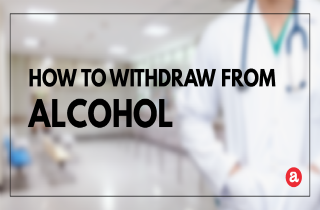Many people drink alcohol casually with no problems. Does alcohol work for everyone? Not necessarily. And if you are worried that you are dependent on alcohol you may have good reason to stop drinking. So how do you withdraw from alcohol safely? What can you expect? We review here and invite your questions about alcohol withdrawal at the end.
When do you withdraw from alcohol?
Becoming addicted to alcohol does not happen overnight. Withdrawal from alcohol occurs any time your body has become dependent on alcohol…and is deprived of alcohol. Specifically, you experience alcohol withdrawal after a period of binge drinking or longer period of chronic, daily drinking. When you become dependent on alcohol, your body has become tolerant of its effects, and you face withdrawal symptoms when you do not consume any alcohol. While alcohol as an addictive substance may not affect everyone, about 10% of those who drink become alcoholics.
How long to withdraw from alcohol?
Full withdrawal from alcohol can take weeks, and sometimes even months depending on the severity of use and dependence. Symptoms typically begin 5-10 hours after the last drink and become more severe after 48-72 hours. Usually the physical symptoms will subside after a week or two. However, the psychological symptoms of alcohol withdrawal have the potential to last much longer. It is important to seek behavioral therapy and treatment for psychological symptoms as well as address physical withdrawal symptoms.
Withdraw from alcohol symptoms
The symptoms of alcohol withdrawal have both physical and psychological affects. Physically you may feel like you have the flu, or another illness. These symptoms can include clammy skin, headache, loss of appetite, nausea and vomiting and sweating. Psychologically, you will face more subtle symptoms. These are the symptoms that have the most affects on long-term sobriety. Withdraw from alcohol symptoms include:
- anxiety or nervousness
- depression
- fatigue
- irritability
- jumpiness or shakiness
- mood swings
- nightmares
- not thinking clearly
Severe withdraw from alcohol symptoms – including hallucinations, seizures, or delirium tremens – can occur if you have been heavily dependent on alcohol for an extended period of time. Symptoms of delirium tremens include agitation, severe confusion, hallucinations, fever and seizures. If you think you are at risk of experiencing delirium tremens, seek help for alcohol withdrawal immediately.
How to ease withdrawal symptoms from alcohol
Severe alcohol withdrawal requires pharmacological intervention (prescription medications). Although a wide variety of medications have been used for this purpose, experts disagree on the optimum medications and prescribing schedules. To ease withdrawal symptoms from alcohol, the following medications may be prescribed:
- Adrenergic Medications
- Antiseizure Medications
- Benzodiazepines
Additionally, supportive care helps ease withdrawal symptoms from alcohol. Administration of electrolytes (magnesium, phosphate, and sodium) is critical in correcting severe dehydration. Taking supplements of folic acid and thiamine help correct vitamin deficiencies. And IV fluids can help increase the prescence of water in the blood and within cells.
How to withdraw from alcohol safely
After continued use of alcohol over an extended period of time, safely withdrawing from alcohol should be done under the supervision of a doctor. Hospital admission provides the safest setting for the treatment of alcohol withdrawal, although many patients with mild to moderate symptoms can be treated successfully on an outpatient basis. It is important to monitor withdrawal symptoms in order to avoid complications that can lead to long-term health problems. Whether you choose to go to an inpatient facility or an outpatient facility, consult a doctor or counselor to talk about safe alcohol withdrawal.
Can I withdraw from alcohol at home?
Maybe. It is possible to safely withdraw from alcohol at home. Withdrawing from alcohol can be done at home, as long as you are not at risk of severe side effects and monitor your symptoms carefully. Dealing with minor physical withdrawal symptoms in cases of early alcoholism is similar to dealing with symptoms of the flu, and can be remedied at home. However, isolated alcohol withdrawal is not recommended, especially when you attempt to do this completely alone. Seek outside counsel from a medical doctor for advice and support. You’ll also need to seek outside alcohol counseling or support from groups to address psychological withdrawal symptoms.
The best way to withdraw from alcohol
The best way to withdraw from alcohol is under medical supervision, in a detox clinic. Getting help from professionals helps you maintain complete abstinence and can also get you referrals to behavior therapy, in either inpatient or outpatient facilities. In fact, it’s the psychological aspect of withdrawal treatment which will provide you with the best chance for long-term sobriety, which is necessary to prevent further dependence and withdrawal. Seeking behavioral change will allow you to deal with all psychological symptoms of alcohol withdrawal, allowing you to be symptom free sooner.
How to deal with withdrawal from alcohol questions
Are you trying to withdraw from alcohol and have further questions regarding treatment and symptoms? Do you have expertise or experience with how to withdraw from alcohol? Leave a comment below and we will get back to you personally and promptly.









Related Posts